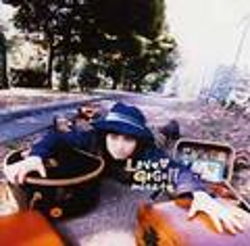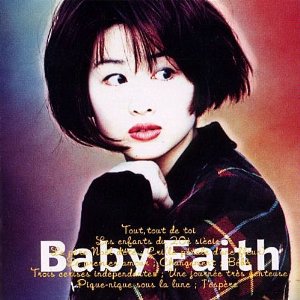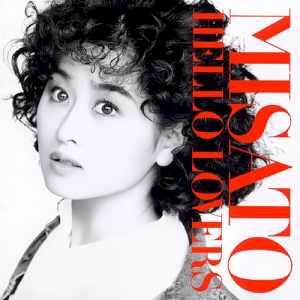
Misato Watanabe is a Japanese pop singer.

Sony Music Entertainment (Japan) Inc., often abbreviated as SMEJ or simply SME, and also known as Sony Music Japan for short, is a Japanese music arm for Sony. Founded in 1968 as CBS/Sony, SMEJ is directly owned by Sony Group Corporation and is operating independently from the United States-based Sony Music Entertainment due to its strength in the Japanese music industry. Its subsidiaries include the Japanese animation production enterprise, Aniplex, which was established in September 1995 as a joint-venture between Sony Music Entertainment Japan and Sony Pictures Entertainment Japan, but which in 2001 became a wholly owned subsidiary of Sony Music Entertainment Japan. It was prominent in the early to mid '90s producing and licensing music for animated series such as Roujin Z from acclaimed Japanese comic artist Katsuhiro Otomo and Capcom's Street Fighter animated series.
Soleil is the French word for the Sun.

Album recorded by female Japanese pop artist Watanabe Misato. It was released on November 23, 2005 by Sony Music Entertainment.

Blue Butterfly is an album recorded by female Japanese pop artist Watanabe Misato. It was released on July 14, 2004 by Sony Music Entertainment.

Café mocha - Uta no Ki is an album recorded by Japanese pop artist Watanabe Misato. It was released on March 2, 2002 by Sony Music Entertainment.
Uta no Ki – Gift is an album recorded by the female Japanese pop artist Watanabe Misato. It was released on December 6, 2000, by Sony Music Entertainment.

Love Go Go!! is an album recorded by female Japanese pop artist Watanabe Misato. It was released on July 19, 2000 by Sony Music Entertainment.

Hadaka no Kokoro is an album recorded by female Japanese pop artist Misato Watanabe. It was released on July 1, 1998 by Sony Music Entertainment.

Spirits is an album recorded by Japanese pop artist Watanabe Misato. It was released on July 12, 1996 by Sony Music Entertainment.

She Loves You is an album by Japanese singer Misato Watanabe. It was released on July 15, 1995 by Sony Music Entertainment.

Baby Faith is an album by Japanese singer Misato Watanabe. It was released on September 7, 1994 by Sony Music Entertainment.

Big Wave is an album by Japanese singer Misato Watanabe. It was released on July 21, 1993 by Sony Music Entertainment.

Hello Lovers is an album by Japanese singer Misato Watanabe. It was released on July 8, 1992 by Sony Music Japan.

Album recorded by female Japanese pop artist Watanabe Misato. It was released on July 10, 2002 by Sony Music Entertainment.

Lucky is an album by Japanese singer Watanabe Misato. It was released on July 6, 1991 by Sony Music Entertainment.

Epic Records Japan is a Japanese record label owned by Sony Music Entertainment Japan. Its founder was Shigeo Maruyama.
Album recorded by female Japanese pop artist Watanabe Misato. It was released on October 8, 2008 by Sony Music Entertainment.
Sayuri Kokushō born December 22, 1966 in Kanoya, Kagoshima Prefecture, Japan is a Japanese actress, singer, and tarento. She was an original member of Onyanko Club. She works for the talent management firm Sony Music Artists. Her debut single, Valentine Kiss, is the most popular Valentine's Day song in Japan.

"Eternal Wind ~Hohoemi wa Hikaru Kaze no Naka~" is the ninth single by Japanese singer Hiroko Moriguchi, released on February 5, 1991, under Starchild Records. Written by Yui Nishiwaki and Yoko Orihara, the song was used as the ending theme of the 1991 mecha anime film Mobile Suit Gundam F91. The single peaked at No. 9 on Oricon's singles charts and landed at No. 47 on Oricon's 1991 year-ending chart, making it Moriguchi's best-selling single. It was also certified Gold by the RIAJ. In addition, the song led to her debut on NHK's Kōhaku Uta Gassen that year.
This page is based on this
Wikipedia article Text is available under the
CC BY-SA 4.0 license; additional terms may apply.
Images, videos and audio are available under their respective licenses.
















